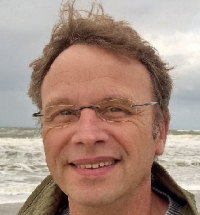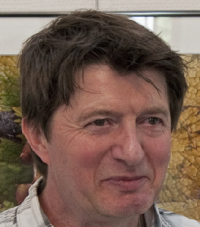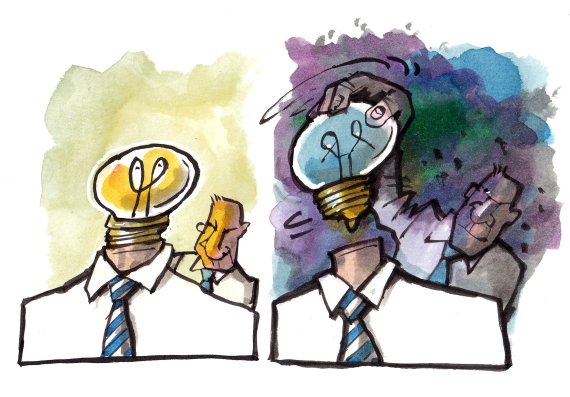text Tessa Louwerens illustration Henk van Ruitenbeek

Edwin Foekema. Researcher and project manager at Wageningen Marine Research
‘I think we certainly need to be on our guard against science becoming fettered by higher authorities. But I think that as scientists, we ourselves also need to make sure science stays unbiased. Sometimes scientists’ statements seem to be motivated by commercial considerations, for example when they paint catastrophic scenarios in order to get more research funding. They make the news with spectacular reports in which scientific nuance is of secondary importance. So the threats to our freedom as scientists are internal as well as external. The combination of commercial or PR considerations on the one hand and political interests on the other are endangering the autonomy of science.’

Joop Schaminee. Professor of Nature Conservation and Plant Ecology
‘Of course scientists need to be able to work and write reports in freedom but that is not all. If science is being brought into disrepute, we can get angry about it but we can also ask ourselves why that is. We need to find out why people have different ideas by listening to them and taking them seriously. There is a huge gulf between the general public and the scientific community. I would like to call on scientists to reach out more, engage with the general public and get involved in the debate.’
 ## Marie Garnier Ortiz. PhD candidate in the Strategic communication
## Marie Garnier Ortiz. PhD candidate in the Strategic communication
.‘I worry about the rise of the so-called post-truth world where “alternative facts” have just as much weight as scientific knowledge. But we have to ask ourselves what contribution we are making to this polarization as scientists and how we can bridge this gap. If we present science as an impartial quest for truth, people rightly take offence at that. We need to come down from our ivory tower and acknowledge that science is inextricably linked with politics. We also need to acknowledge our privileges, preconceptions and limitations if we want open, honest communication, with respect and empathy for the people we are talking to. I think there is much more at stake than academic freedom; human rights are being violated and lives threatened. I think it’s awful that people are still being condemned to death in the 21st century, whether or not they are scientists.’
Joop Spijker, senior researcher in Nature and society at Wageningen Environmental Research‘This is a recognizable issue for me and I’m pleased it is getting attention. It’s important to stress the need for the autonomy of science in the public debate. This is an issue everywhere, not just in Iran and the US but also in Europe. For example, at the moment there is pressure on climate research in the US. In the Netherlands, I experienced a milder version of this in my own field in 2010, when state secretary Henk Bleker in the first Rutte government made major cuts in the budgets for nature policy. Science is highly dependent on the political climate and research is often funded with public money. I therefore think it’s good that something is being said now.’
 ## Marloes van Splunter-Berg. PhD candidate in the Cell Biology and Immunology chair
## Marloes van Splunter-Berg. PhD candidate in the Cell Biology and Immunology chair
.‘Something that isn’t mentioned in the letter but which I see as a threat to some extent to the autonomy of science is the private sector’s share in funding.
This is limiting fundamental research in particular and I find that worrying. I work a lot with companies for my research and I find that fine, but it does affect what direction the research takes. On top of that, the general public often wonders how independent this research is. The letter also voices concerns about science being brought into disrepute, especially on social media. As a scientist you are trained to think in nuances, but people like to read sensational articles. I get the impression that journalists sometimes spice up results for that reason. It’s difficult to find a balance, but science loses its creditability if you keep having to correct statements.’

Michel Nielen. Professor by special appointment of Analytical Chemistry
‘I think there are a number of threats to the autonomy of science, whereby three factors play a role. First the political developments, the main issue mentioned by the rectors in the letter. Societal developments also play a part — take the example of public-private partnerships in the top sectors; does industry have the final say? Another threat to the autonomy of science is the reduction in funding for curiosity-driven research and the way in which this funding is allocated. It is good that the alarm is being sounded but I think action is also required from the researchers themselves. There is room for improvement in terms of communication in particular. The scientific community finds it difficult to do something about the general public’s gut feeling and to strike the right chord. I feel much more attention should be paid to communicating scientific ideas. Communication is already getting attention, but at present the focus is on communication with other scientists. Every member of staff should get media training, for example to learn how to deal with critical media and be trained in explaining in 30 seconds what your research is about and why it is ultimately in everyone’s interest.’


 ##
##